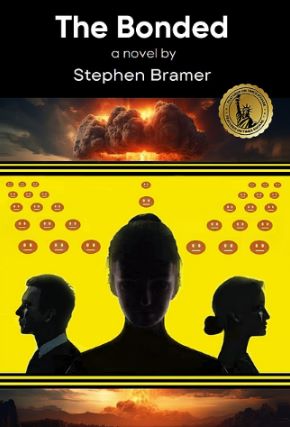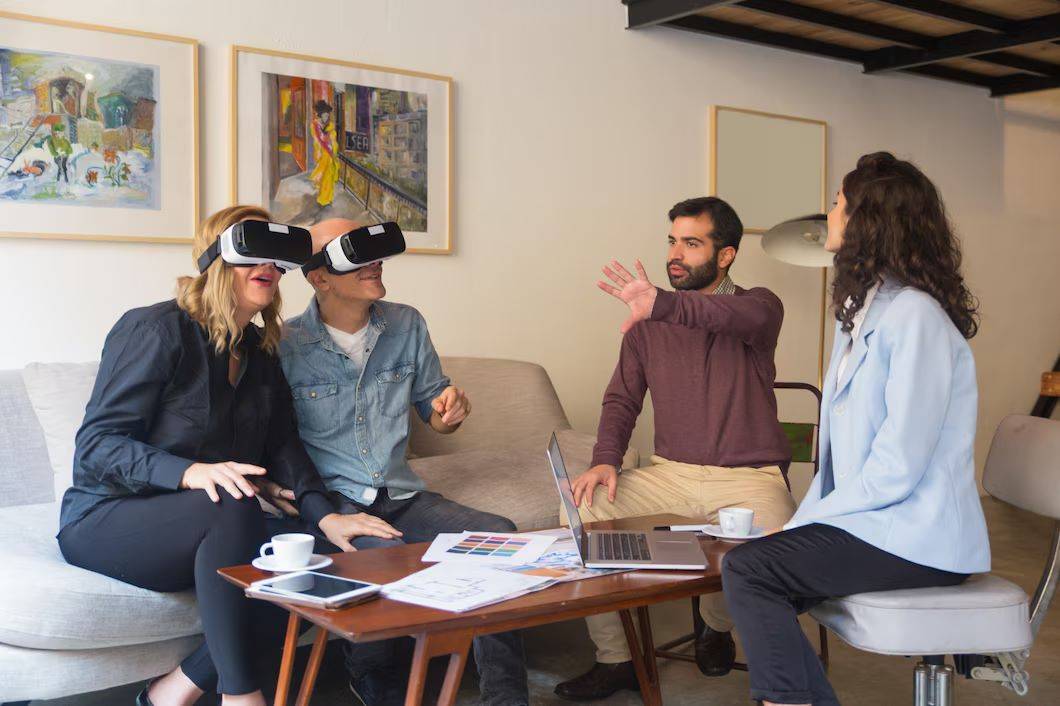What if everything you know, your memories, your experiences, even the people around you were just part of a highly advanced simulation? The idea that we might be living in a simulated reality has fascinated scientists, philosophers, and science fiction fans alike.
Just like in The Bonded by Stephen Bramer, the nature of reality is called into question when forensic technician Dean Parks and Detective Samantha Sheffield uncover a secret hidden beneath everyday life. Let’s dive into the mind-bending theories behind the simulation hypothesis and its place in science fiction.
The Simulation Hypothesis: Could We Be Living in a Digital Reality?
The idea that we’re living in a simulation isn’t just a wild sci-fi concept. In 2003, philosopher Nick Bostrom proposed a theory that if civilizations can create highly advanced simulations, then the odds are we’re already living inside one. If technology continues to progress, future societies might run detailed simulations of past human experiences. It means you might just be a character in someone else’s world.
In The Bonded, the characters face a similar existential crisis. As Sam and Dean dig deeper into the mystery of the Bonded species, they begin to question whether human free will even exists. Their discoveries parallel the unsettling idea that our own consciousness might not be as independent as we think.
Glitches in Reality: Signs That We Might Be in a Simulation
If we are inside a simulation, would we be able to tell? Some theorists believe that “glitches” in reality such as déjà vu, coincidences, or unexplained phenomena could be signs that we are seeing errors in the system. Could things like the Mandela Effect, where large groups of people remember events differently, be proof that our world is being altered or reprogrammed?
In The Bonded, the metallic cards found at every crime scene act as a mysterious anomaly, much like a glitch in a system. As Sam and Dean try to decode their purpose, they uncover a reality that has been manipulated on a scale they never imagined. This mirrors the eerie feeling that something in our own world might be slightly “off.”
Why Sci-Fi Thrillers Love the Idea of a Simulated Reality
From The Matrix to Inception, sci-fi thrillers often explore the terrifying possibility that our reality isn’t real. These stories force you to question everything you know, making them both thrilling and deeply unsettling. The fear of losing control over your own mind is what makes simulation-based thrillers so addictive.
The Bonded taps into this same fear. What happens when you realize your thoughts aren’t entirely your own? As the characters get closer to the truth, they must decide whether knowing the reality of their world is worth the cost, a theme that echoes throughout the best sci-fi thrillers.

Conclusion
The simulation hypothesis is a fascinating concept that challenges our understanding of reality. Whether you find it plausible or far-fetched, it’s impossible to ignore the questions it raises about existence, consciousness, and the nature of the universe. Just like in The Bonded, inexplicable murders bring on the realization that reality may not be what it seems, much like the unsettling theories behind the simulation hypothesis.
If you’re intrigued by mind-bending theories and stories that explore the boundaries of reality, The Bonded by Stephen Bramer is a must-read. This genre-bending novel will take you on a journey that questions the very fabric of humanity.
Ready to dive into a story that blurs the line between reality and illusion? Grab your copy now!



